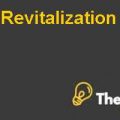Suzlon, an Indian wind turbine manufacturer, led under the aggressive chairman, Tulsi Tanti, has been performing higher value added activities. Although, the company being a late entrant, did not lagged in terms of profitability and growth from its rivals. Through the acquisition of technologically superior firms this emerging economy multinational enterprise (EMNE) has made a prominent position in the wind power industry.
This case describes the challenges encountered by the Suzlon while acquiring knowledge from its subsidiary which are technologically superior then the new parent company. This case elaborate the strategies pursued by Suzlon to compete its industry leaders. The focal point of the case is on the global wind power industry, an emerging high-tech industry.
Suzlon so far has succeeded to achieve its desired objective through acquisition as planned, but the acquisition of the German wind turbine manufacturer REpower in 2007 did not serve their purpose. Suzlon’s aim was to incorporate the state of the art technology of REpower in Suzlon’s low manufacturing cost and operational efficiency to compete its rivals and to gain an eminent position in the industry. After the acquisition Repower’s refusal of sharing its technology with its parent company made a serious threat for the Suzlon, thus, the parent company did not materialize its expected knowledge as planned.
Balancing the Power Equation Suzlon Energy Limited Case Solution
The economic recession of 2008 intensified the challenges involved in this acquisition, this case primarily shows the Tanti’s attempt to tackle the challenge between Suzlon and German subsidiary, REpower. Moreover, this case demonstrates the track that is followed by Suzlon to emerge as a market leader, in India and across the world, in the industry.













